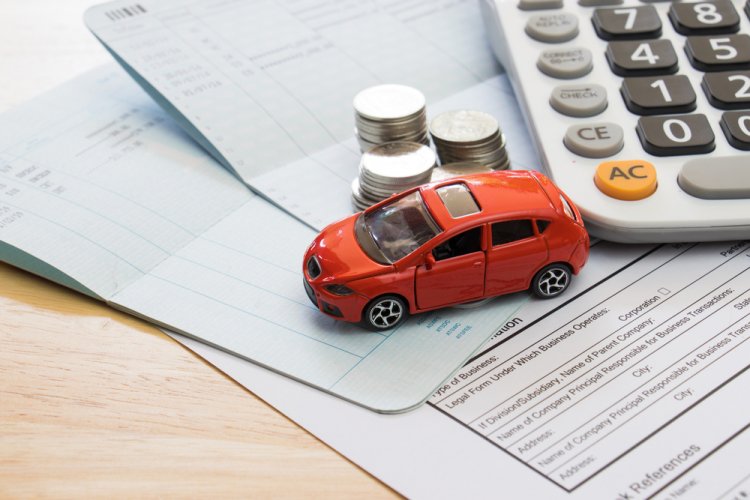
The question is hard to answer if you don’t have certain information on hand first. For example, where do you live, what is your driving record, and do you understand the different factors that can affect this number?
What do you have in common with everyone who has ever gotten behind the wheel? Simple: At some time or another, everyone has sat back and wondered if they are paying too much for car insurance. They want to know what the average car insurance cost is and what everybody else is paying.
Keep reading to get the answers you need and to get to the bottom of your monthly bill!
What Is the National Average Cost Of Insurance?
Nationally, the average car insurance cost per month is $134.05 which equals an annual cost of $1,608.60. However, these numbers only show you part of the picture.
Because that is a national average, it factors in both the people who have only the bare minimum of legally required insurance and those who combine liability, collision, and comprehensive insurance. Keep reading to learn more about the factors that impact how much you pay each month.
What Is the Average Cost of Insurance I Should Pay?
Unfortunately, there is no “one size fits all” answer to that question because the answer largely depends on how much insurance you think you and your family need, plus other factors that insurance companies take into consideration.
There are optional types of coverage you may want to get, including things like underinsured and uninsured motorist insurance. But most drivers focus their attention on the three primary kinds of car insurance: liability, collision, and comprehensive coverage.
Liability is the kind of coverage that only pays out when you are liable for an accident and only for the other driver’s injuries and damage. In most states, liability insurance is required of all drivers in order to cover the expenses of someone who was not at fault.
Collision insurance pays out to cover damage to your car. This insurance will pay even if you are liable for an accident, making it the best way to protect your car while driving.
Comprehensive insurance protects your car whether you are driving or it is sitting in your driveway, meaning it can help to protect you from theft, vandalism, and falling trees. It can also protect against damage from animals, fires, hurricanes, and tornadoes.
If you only have liability insurance, you will have a low monthly bill, but you’ll have to pay out-of-pocket to repair or replace your car if you cause an accident. Having all three types of coverage is known as “full coverage,” and this offers the greatest protection along with the highest bill.
Ultimately, every driver must find that delicate balance between how much protection he or she want and how much they are willing to pay. And, of course, the coverage limit you get for each type of insurance will also affect how much you pay.
Factors Affecting Your Car Insurance Costs
Now you know that which types of coverage you purchase (and how much of a coverage limit you get) affect how much you have to pay each month. These factors are completely in your control. But your exact bill is determined using other factors, and some of these factors are outside of your control.
For example, an insurance carrier will look at things like your insurance history, your driving record, and even your credit score. While the latter choice may be surprising, these are all things that are in your control.
Another major factor is location. We’re going to look closely at this factor in a minute, but moving somewhere else could drive your bill either up or down.
But there are other factors the insurance carrier considers that you cannot change. This includes the condition of your car (such as mileage), your gender, and your age.

Location: It Matters When It Comes to Your Car Insurance Bill
Previously, we covered the national average cost of car insurance. But another reason this doesn’t tell you the full story is that the average car insurance price may vary significantly from place to place.
For example, Florida has a high state average. These drivers pay an average of $186.53 per month, which is a big jump from the national average of $134.05. And certain cities are even more expensive. Those who live in tourist-friendly Orlando, FL pay an average auto insurance cost per month of $201.47 per month!
And you don’t have to move to a different state or different city to experience this. Because the insurance carrier looks at your zip code (to determine things like how many car accidents happen annually in this area or how many crimes against vehicles happen), simply moving to a different section of town could drive your bill up or down.
Seeking Out Car Insurance Discounts
Some of this information may feel a bit upsetting. After all, it’s annoying to learn that how much you pay for your car insurance is determined partly by things outside of your control.
Here’s some good news, though: There are definite steps you can take to lower how much you pay each month. And one of the best moves you can make is to ask your insurance agent about any discounts.
Every insurance carrier offers discounts. This may include completing a driving safety course, installing anti-theft devices in your car, or even just maintaining a clean driving record over multiple years.
You won’t know exactly which discounts your own carrier offers until you ask. Just think: You could lower your monthly bill just by making a call and discovering you already qualify for a discount!
Never Forget to Shop Around
The best thing you can do to lower how much you pay for car insurance is to shop around for the best rates. And what if you could do that with the click of a button?
You may already qualify to pay for less than the average cost for car insurance. To find out, get started with a quote online, visit us at a local office near you, or call us at (800) 777-5620 for a free quote today!



